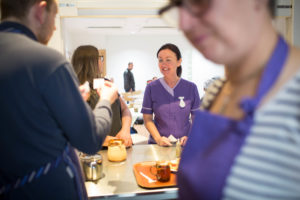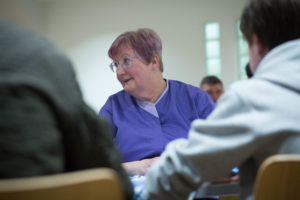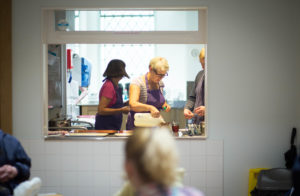Rachel McReady
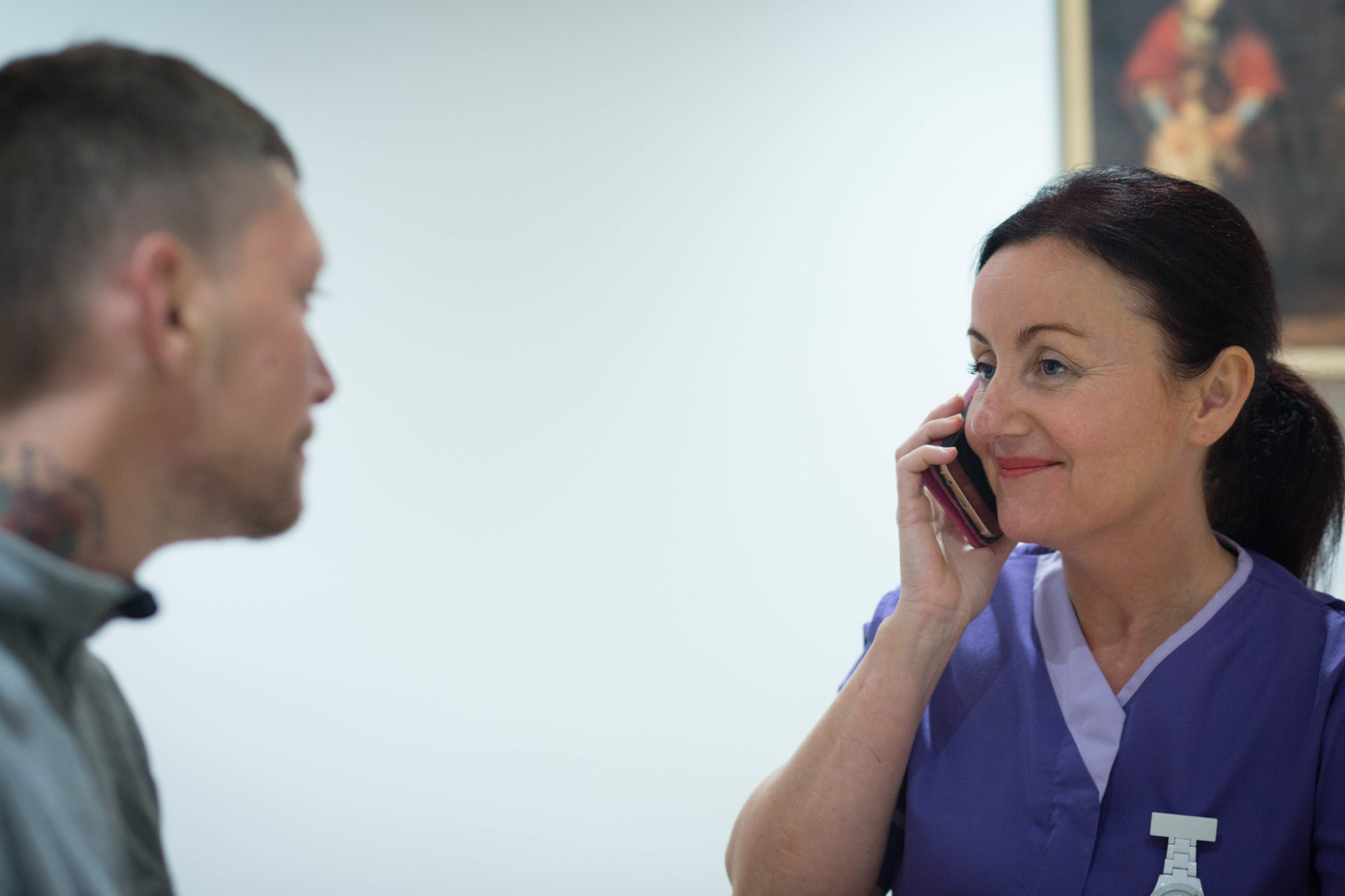
To Cheryl Ferguson, Dundee’s Steeple Church Parish Nurses are “my wee adopted mammies”. To others, they are problem-solvers, shoulders to cry on, and even life-savers.
“They’ve done a lot for me and every single person who comes through this door,” says Cheryl. “I really don’t think I’d be here now if it wasn’t for them. I’d be in a box.”
Cheryl is back for a visit to the drop-in clinic at The Steeple Church that she once regarded as a lifeline. Now she has a story of recovery to share. “I was described as a lost cause, but I have proved them all wrong,” she says. “I want people like myself to know there is someone out there they can ask for help. A lot of them never expect it.”
Parish Nurses Rachel McReady, Barbara Macfarlane and Kirsty Watt provide a service for people who are experiencing homelessness, poverty, and a wide range of problems. At the Drop-in Clinics that they run twice each week they try to help with health issues and give support where it is required. “Folk often have difficulty accessing the help they need,” says Rachel. “We offer time, genuine love and care and a helping hand alongside our nursing skills. It is important that this is a safe place for them.”
Parish Nursing is charity that operates through churches and Christian organisations across the UK. The Steeple service was set up nine years ago, and is the only one in Scotland working specifically with people affected by homelessness, which includes rough sleepers, people living in temporary hostel accommodation, those who may be sofa-surfing, and people whose tenancies are vulnerable due to mental health problems and other challenges.
Some are struggling with addictions to alcohol, drugs, gambling; some because of adverse childhood experiences, post-traumatic stress disorder, leaving the armed forces or coming out of prison.
“It can be difficult to get medical and other appointments, and for some of our folk it is even harder if they don’t have phones or money to get to appointments,” says Rachel. “When they have health problems they may be put off seeking medical help.”
The Parish nurses help to make vital appointments for people and will attend with them if they require the additional support. They also refer individuals to many other services within the city . “Parish nurses describe their role as ‘walking with people on their health journey’.”
Around 30 people attend each drop-in clinic, and while the Parish Nurses are assessing health needs and listening, a team of volunteers is serving warm, welcoming, healthy food.
“Some of the volunteers originally came for help themselves and are now recovering, really trying to turn their lives around and move forward,” says Rachel. “They learn skills and are part of a very caring team, which in itself is a positively life-building opportunity.”
Health promotion is a key part of the Parish Nurse service, preventing conditions from worsening by involving all the help that a person needs. “It doesn’t matter whether it’s a problem with a wound, depression, toothache, benefits sanctions or a housing problem,” says Rachel. “They are all equally important in person-centred care. Folk need a more holistic approach to assist them with their health and social needs.”
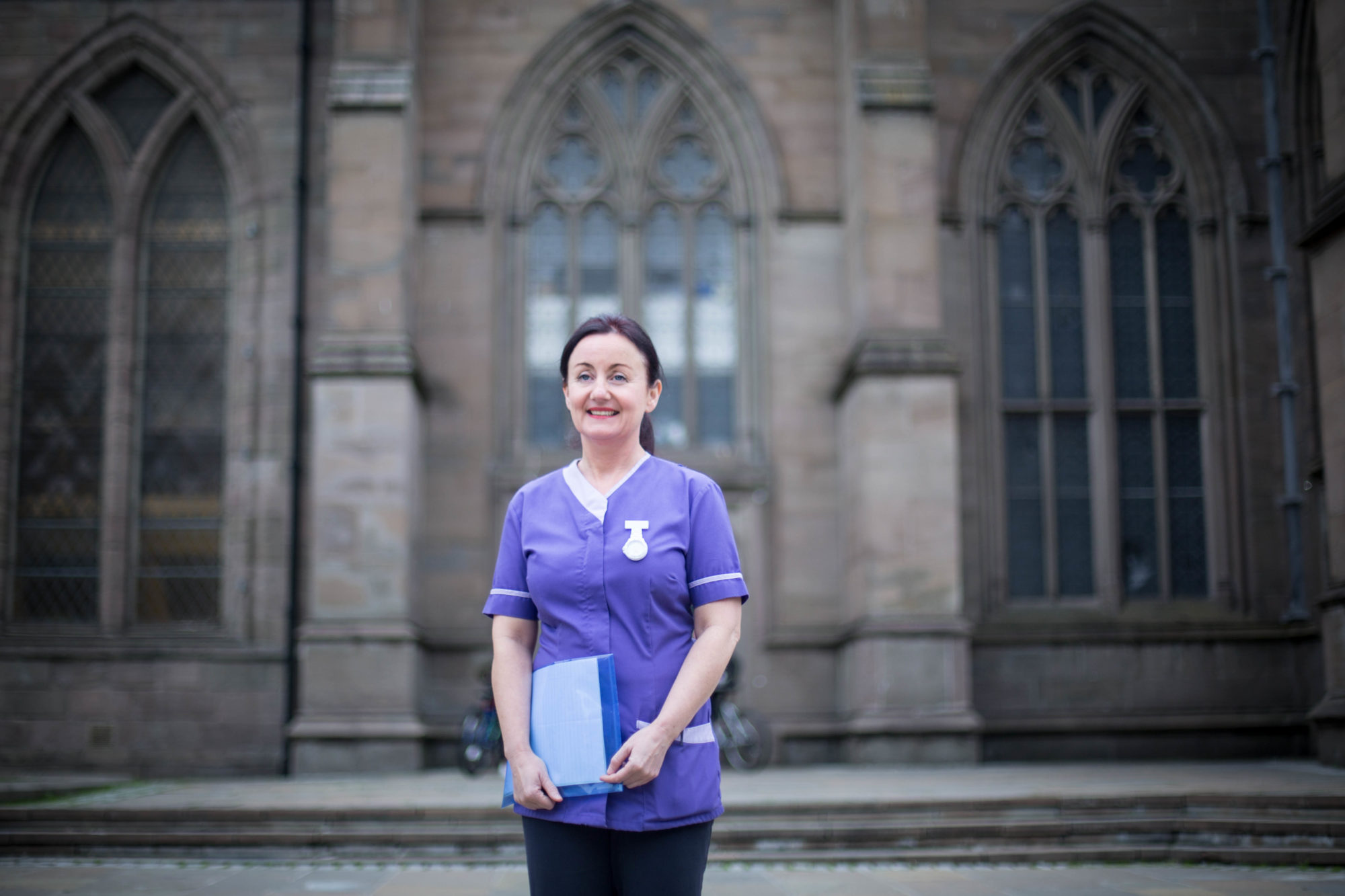 The Parish Nurses have close links with Dundee City Council’s welfare advice team, Connect, whose staff help with benefits queries, referrals to the Food Bank, and to harm reduction and other relevant services. And the NHS community Dental Team brings its mobile surgery to the city-centre church each week.
The Parish Nurses have close links with Dundee City Council’s welfare advice team, Connect, whose staff help with benefits queries, referrals to the Food Bank, and to harm reduction and other relevant services. And the NHS community Dental Team brings its mobile surgery to the city-centre church each week.
As Christians, the Parish Nurses care for people of all faiths and none. “Folk often speak of how lonely they are, how they feel they don’t matter to anyone or belong anywhere, there’s no sense of hope or purpose,” says Rachel. “Problems cannot always be fixed, but sometimes a prayer can give a wee injection of courage and hope, and all the more so if it’s accompanied by a hug.”
Rachel is one of 20 nurses taking part in the new Queen’s Nursing Institute Scotland’s development programme, which promotes excellence in community nursing. She won her Queen’s Nurse title, one of the first to be awarded in almost 50 years, for her heartfelt commitment to improving care for people who are very marginalised by society.
Having trained as a nurse in Dundee, Rachel worked in Ninewells Hospital for 15 years in orthopaedics, surgical and haematology wards, and then in the community anticoagulant team. “It was then I realised that community work was where my heart lay,” she says.
She took a part-time post with the NHS Health and Homeless Outreach Team, which works in partnership with Parish Nursing in Dundee. When a complementary part-time position came up there, Rachel jumped at it. “Having a foot in both camps presents some challenges, but on balance it brings many benefits for both services,” she says. “Parish Nurses play a very supportive role alongside their professional colleagues both in health care and other relevant agencies, without duplication.”
As part of her Queen’s Nurse development programme Rachel is undertaking a professional challenge: to bring together relevant statutory, voluntary and other small organizations.
“Hopefully this will encourage us all to work closer together so that a more supportive, effective and co-ordinated way can be used in order to develop a more community based person-centred recovery journey.”
“By working together we can break down some of the traditional barriers and continue to build bridges of hope for people in our community.”
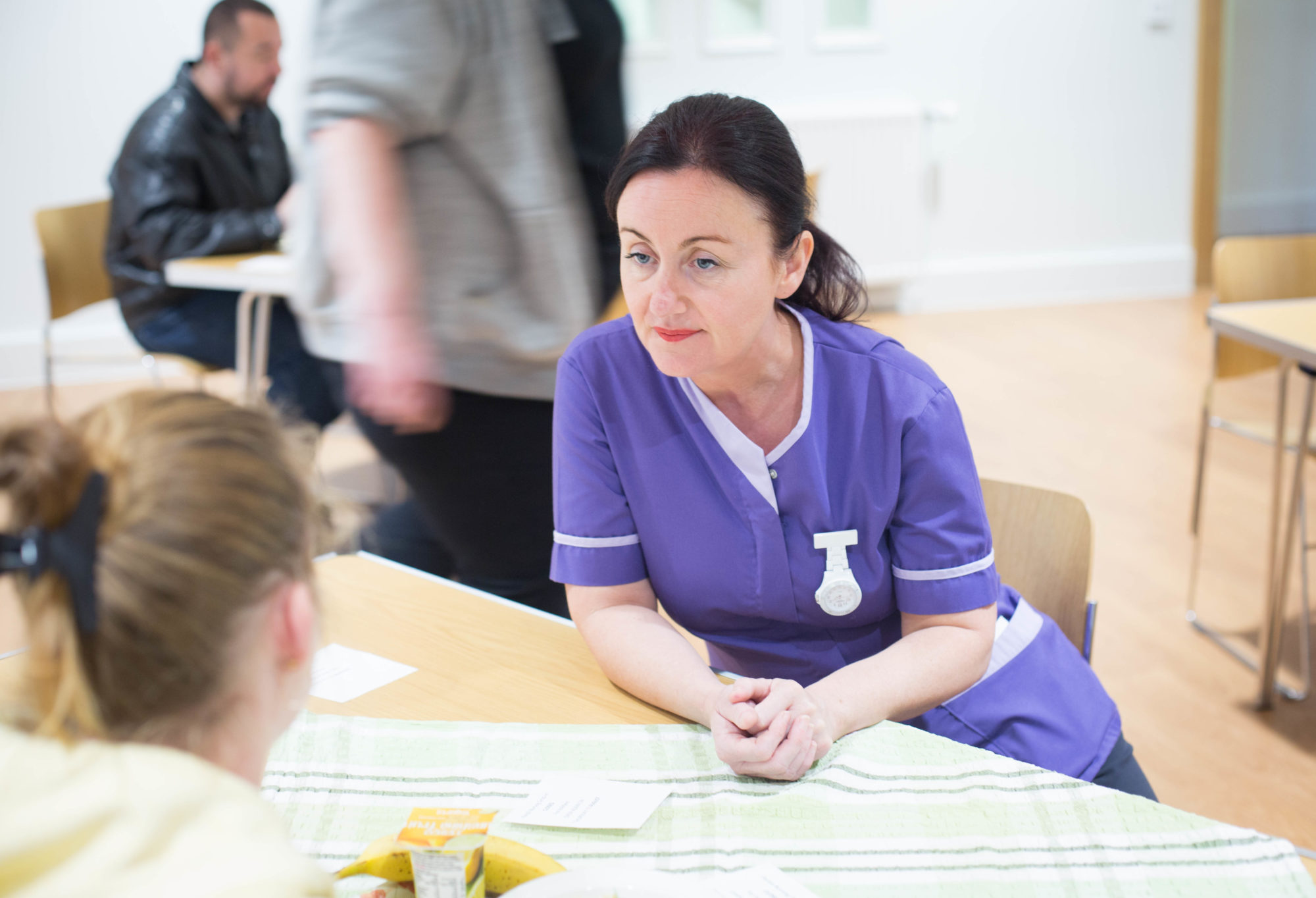 For Hazel Douglas, Senior Staff Nurse with the Health and Homeless Outreach Team, the Parish Nurses’ approach is special. “We hear words such as love, care, worthiness and hope, and the response by our guys is remarkable. So much so I have adopted this approach myself,” she says. “Although I have always holistically attended my patients I have personally learned so much more as a spiritual being. The Parish Nurses are very special, and to me they are the very heart of our city.”
For Hazel Douglas, Senior Staff Nurse with the Health and Homeless Outreach Team, the Parish Nurses’ approach is special. “We hear words such as love, care, worthiness and hope, and the response by our guys is remarkable. So much so I have adopted this approach myself,” she says. “Although I have always holistically attended my patients I have personally learned so much more as a spiritual being. The Parish Nurses are very special, and to me they are the very heart of our city.”
